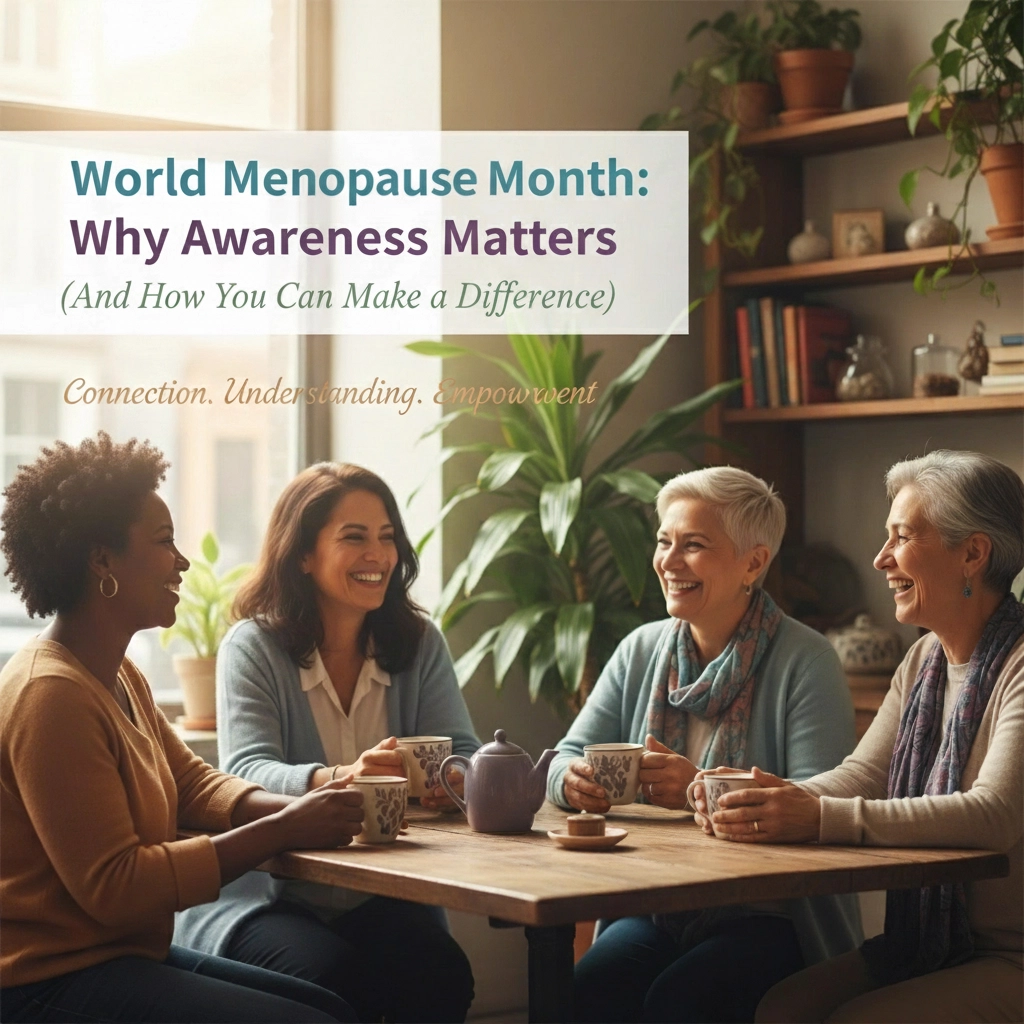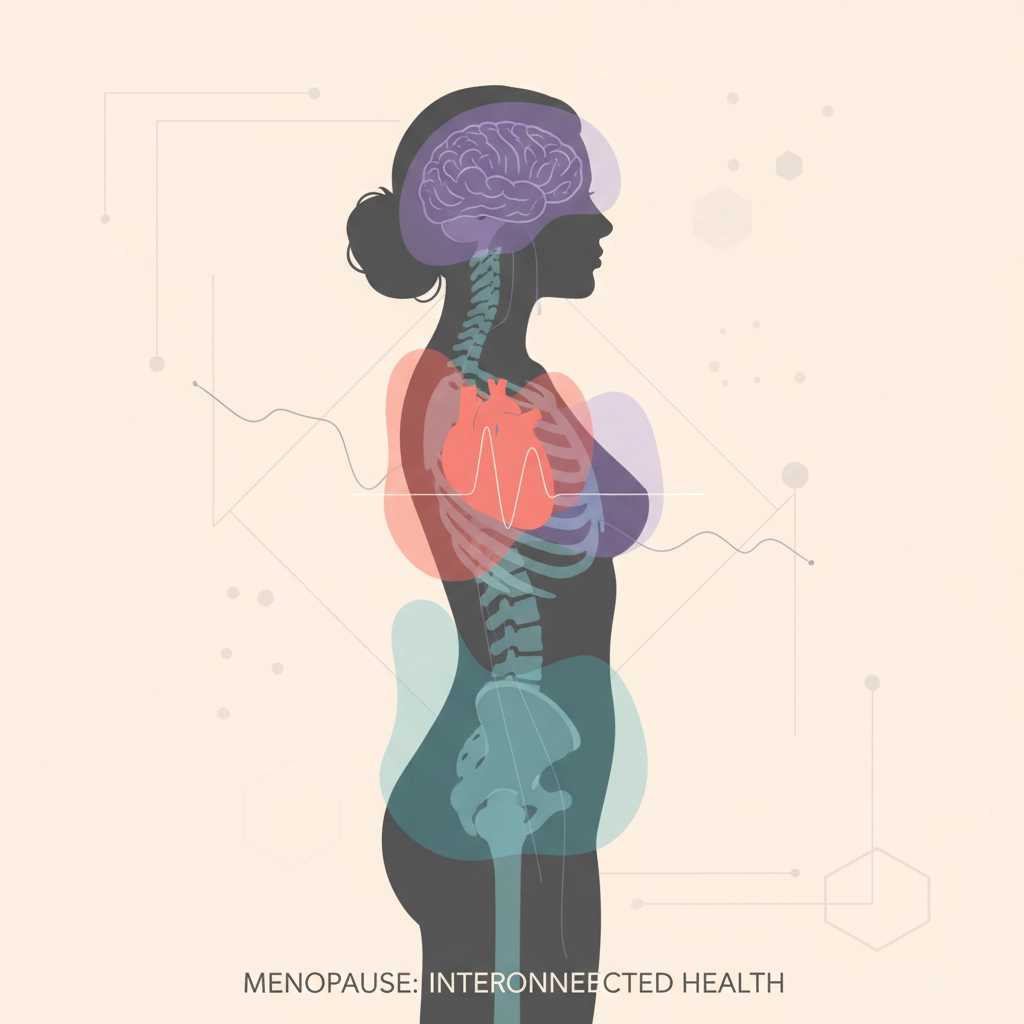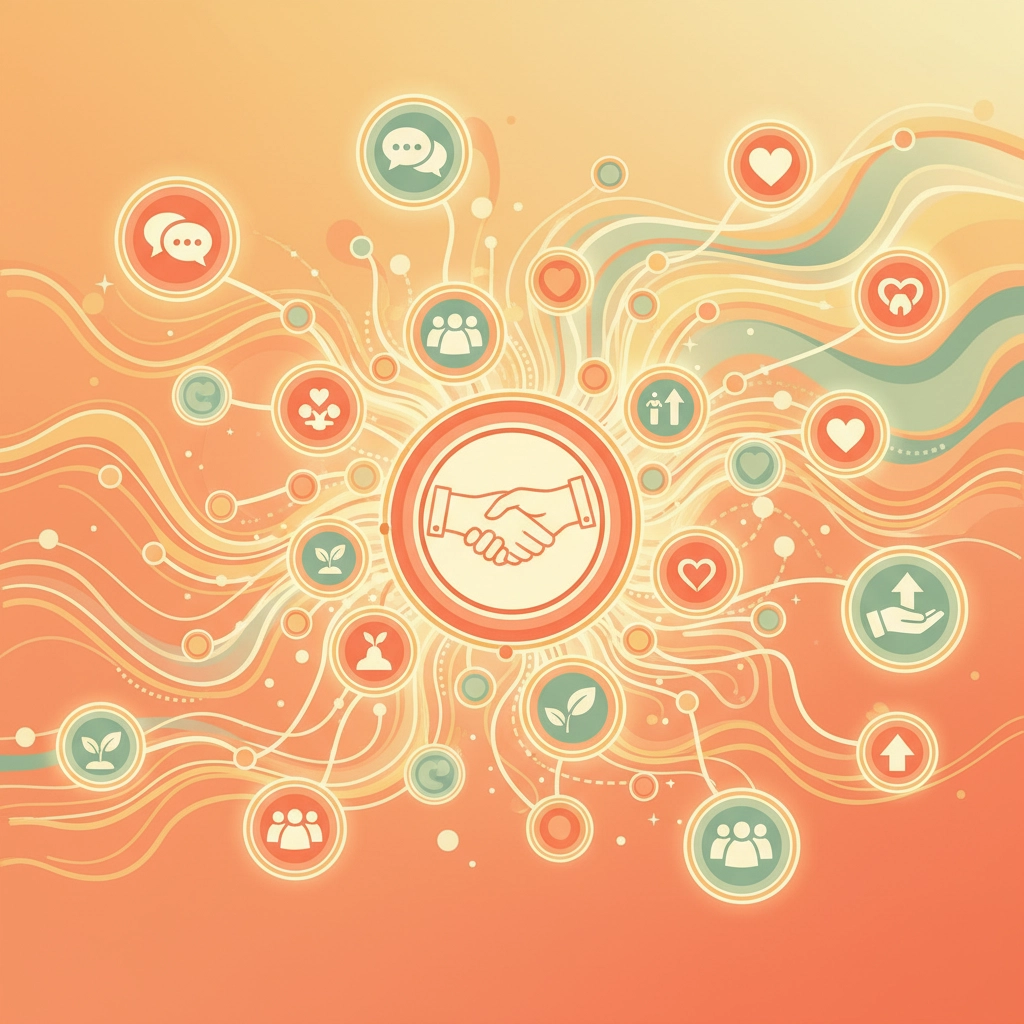
Every October, something powerful happens. Women around the world start talking: really talking: about menopause. World Menopause Month, with World Menopause Day on October 18th, isn't just another awareness campaign. It's a movement to change how we think, talk, and care for women during one of life's most significant transitions.
Started by the World Health Organization and the International Menopause Society, this annual initiative has one clear mission: to break the silence that's kept too many women suffering alone. And in 2025, the theme of "lifestyle medicine" reminds us that small, everyday choices can make a huge difference in how we experience this life stage.
But here's the thing: awareness only works if we all participate. So let's dive into why this month matters so much and exactly how you can be part of the change.
The Silence That's Hurting Women
Picture this: You're 47, suddenly waking up drenched in sweat at 3 AM, feeling like your brain is wrapped in cotton during important meetings, and wondering if you're losing your mind. Sound familiar?
You're not alone. One in three women experiences significant problems during menopause, yet most of us are navigating this major life transition with little guidance and even less support.
The statistics are staggering: and heartbreaking. Studies show that 78% of women hide their menopause symptoms at work, afraid of being seen as less capable or reliable. Many suffer through symptoms for years before seeking help, simply because they don't realize what's happening to their bodies.
This silence isn't just uncomfortable: it's dangerous. When women don't understand the health implications of menopause, they miss critical opportunities to protect their heart health, bone density, and overall wellbeing. The hormonal changes during menopause significantly increase risks for cardiovascular disease and osteoporosis, but many women aren't aware of these connections.
Why Breaking the Silence Changes Everything
It Saves Lives
When women understand what's happening to their bodies, they make better health decisions. They're more likely to discuss symptoms with healthcare providers, explore treatment options, and take preventive steps for long-term health conditions.
Research shows that women who receive proper menopause education are 40% more likely to maintain regular exercise routines and 35% more likely to prioritize bone health measures during their transition.
It Transforms Workplaces
Menopause affects women during their peak career years: typically between ages 45 and 55. When workplaces acknowledge and support this reality, everyone wins. Companies with menopause-friendly policies report higher retention rates among experienced female employees and improved overall workplace satisfaction.
It Strengthens Relationships
When families understand menopause, they can provide better support. Partners learn that mood changes aren't personal attacks, and children understand why mom might need extra patience some days. This knowledge creates compassion instead of confusion.
Your Action Plan: Making a Real Difference
Start With Yourself (Even If You're Not Going Through Menopause)
Knowledge is your first tool for change. Whether you're approaching menopause, in the thick of it, or supporting someone who is, education empowers everyone.
Take 30 minutes this week to read evidence-based resources about menopause symptoms, treatment options, and health considerations. Understanding the science helps you separate facts from myths and make informed decisions.
If you're experiencing symptoms, keep a symptom journal. Track patterns in hot flashes, sleep disruptions, mood changes, or brain fog. This information becomes invaluable when talking with healthcare providers.
Become a Conversation Starter
The most powerful thing you can do? Start talking. Share your experiences, ask questions, and create safe spaces for honest conversations.
Host a "Menopause 101" gathering with friends or colleagues. You don't need to be an expert: just someone willing to create a judgment-free zone where women can share experiences and resources.
Use social media thoughtfully. Share informative posts, personal stories (if you're comfortable), or simply amplify voices of women breaking menopause stigma. Every share helps normalize these important conversations.
Transform Your Workplace
If you're in a leadership position, champion menopause-friendly policies. This includes flexible work arrangements during challenging symptom days, temperature control options, and access to resources like cooling devices or private spaces.
Even if you're not in management, you can make a difference. Start conversations with HR about menopause support, suggest lunch-and-learn sessions, or simply be the colleague who listens without judgment when someone is struggling.
Support the Bigger Picture
Connect with organizations working to change menopause care and awareness. The Menopause Education Center offers comprehensive resources for individuals and organizations looking to improve menopause support and education.
Advocate for better healthcare provider training. Many doctors receive minimal menopause education in medical school. Support initiatives that improve healthcare professionals' understanding of menopause symptoms and treatment options.
Create Community Impact
Organize community events during World Menopause Month. Partner with local libraries, community centers, or women's organizations to host educational sessions, panel discussions, or resource fairs.
Volunteer with organizations supporting women's health initiatives. Your time and skills can help expand access to menopause education and support.
The Ripple Effect of Awareness
When we talk openly about menopause, we create ripples that extend far beyond individual conversations. We're changing cultural attitudes, improving workplace policies, advancing medical research, and ensuring the next generation of women enters menopause with knowledge and support.
Consider this: every woman who speaks openly about her menopause experience gives permission for other women to do the same. Every workplace that implements supportive policies sets an example for others to follow. Every healthcare provider who receives better menopause training can help hundreds of patients.
This Month, Choose Action
World Menopause Month isn't just about raising awareness: it's about transforming how our society supports women through this major life transition. The power to create change lies in our collective action.
This October, commit to one concrete step. Maybe it's having an honest conversation with your doctor about symptoms you've been minimizing. Perhaps it's starting a menopause support group at work. Or it could be as simple as checking in with a friend who might be struggling silently.
Remember, menopause isn't a medical condition to be cured: it's a natural life transition that deserves respect, understanding, and support. When we approach it with knowledge instead of shame, community instead of silence, and action instead of resignation, we transform not just individual experiences but our entire culture's relationship with women's health.
The conversation starts with you. What will you do to make a difference this World Menopause Month?
Ready to dive deeper into menopause education and support? Explore comprehensive resources and expert-led programs at https://menopauseclasses.com to continue your journey toward informed, empowered menopause care.






